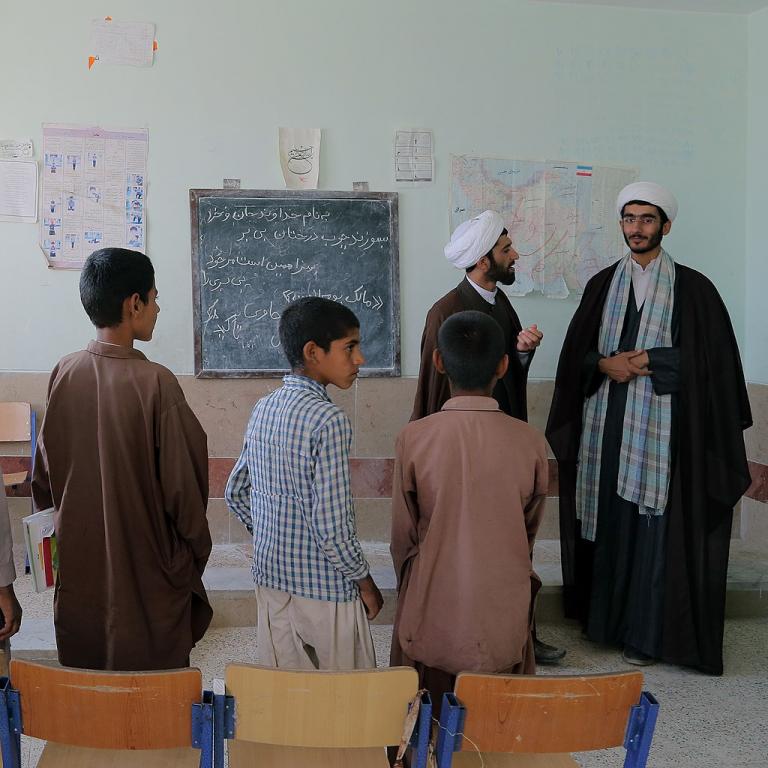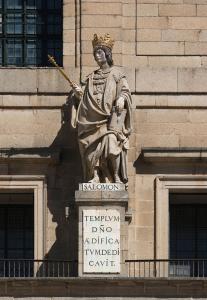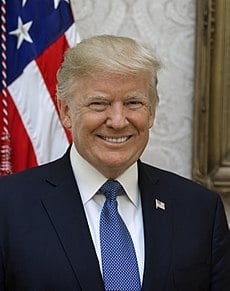 The bulk of the very long chapter in today’s passage concerns the dedication of the Solomonic temple by the king himself. It is difficult to determine just when this lengthy prayer was written, but since it is infused with Deuteronomic language, it could not have been composed much before 200 years after the actual temple dedication in the middle of the 10th century BCE. In other words, we will never know what Solomon actually said by way of dedication, but we do know well the propaganda piece offered up by the later writers whose prime concern seemed to have been a white washing of the early history of Israel and Judah.
The bulk of the very long chapter in today’s passage concerns the dedication of the Solomonic temple by the king himself. It is difficult to determine just when this lengthy prayer was written, but since it is infused with Deuteronomic language, it could not have been composed much before 200 years after the actual temple dedication in the middle of the 10th century BCE. In other words, we will never know what Solomon actually said by way of dedication, but we do know well the propaganda piece offered up by the later writers whose prime concern seemed to have been a white washing of the early history of Israel and Judah.
There can be little doubt that Solomon was a far less traditionally religious king than he is portrayed in this prayer. Indeed, his actions after the death of his father David, as outlined in 1 Kings 1-2, suggest a potent monarch intent on consolidating power at the expense of any who dared oppose his rule, that consolidation including murder when deemed necessary. Whatever prayer he prays at the doors of the new temple of Jerusalem inevitably bears more than a whiff of hypocrisy set against the backdrop of his reign to date. I will leave it to some of you who wish to use the prayer as some sort of model for modern prayer to exegete the passage with that goal in mind. As for me, I have rather different fish to fry.
I am struck by 1 Kings 8:41-43 and its obvious concern with any foreigners who come to the Holy City to worship at the new temple. This concern suggests that foreign visits to the temple are hardly rare, and that was important for those living and working in Jerusalem to address the issue directly. Just how are we Israelites to treat foreigners in our midst? It is of course important to remember when discussing this issue in our 21st century context that our stated need sharply to separate church from state in our democracy—however confused some of us continue to be about that reality— is hardly matched by 8th-7th century BCE Israel. In that long ago place and time church and state were tightly bound together. The king was the leader of both church and state, and there was no debate about that fact. Yet, those who wrote this prayer and placed it in the mouth of King Solomon felt it important to deal with the fact of foreigners in the Holy City and their desire to worship in the sacred temple.
The key Hebrew term used for “foreigner” here is nokri. What makes its usage of real interest in this context is that in nearly every other use of the word, it carries a decidedly negative connotation. The more common ger, also meaning “stranger or foreigner,” is usually the choice when positive relationships between Israelites and foreigners are a subject of discussion. A ger who comes to live in Israel, even for a brief time, has certain rights of citizenship, can worship in the temple, and can become a genuine part of the community. An example of this requested treatment of a ger is found in Ex.23:9: “You shall not oppress a ger; you know the heart of a ger for you were gerim in the land of Egypt.” Thus, it could be concluded that a ger was the middle term between a native-born Israelite and a nokri, a foreigner not usually granted the rights of Israelite citizenship.
All the more surprising then that in 1 Kings 8:41-43 Solomon’s prayer includes a deep concern for the prayers of any nokri, “a foreigner who is not of your people Israel.” It is explicitly stated that “when a nokri comes and prays to your house,” Solomon asks YHWH to “hear in the sky, your dwelling place, and act according to all that the nokri calls to you.” In other words, the prayers of a nokri are fully appropriate and can be expected to be answered by YHWH in full. And why is this important? “So that all the peoples of the earth may know your name, and worship (fear) you, as do your people Israel, and so that you may know that your name has been invoked in this house that I have built.”
I find this passage quite illuminating, particularly concerning our difficult moment in American history in 2018. President Trump has gone out of his way to denigrate and attack many modern immigrants to the USA. He has called Mexican immigrants “rapists and murderers.” He has tried, so far without complete success, to ban all Muslim immigrants, especially those from several Muslim majority countries, making it clear that he sees all Muslims as antagonistic to his understanding of what America stands for. In short, Mr. Trump is doing his best to “return” our country to some perceived “day of greatness” when everyone was white and homogeneous. The fact that America has never been like that in any shape or fashion has not deterred him from pursuing his goal of “cleansing” the country from his undesirables.
I would suggest to him, and to many of his supporters, especially those who claim to follow Christianity and its central book, the Bible, that a reading of 1 Kings 8:41-43 could prove helpful. When the prayers of the nokri, the foreigners who are clearly not native-born and who clearly are given no easy access to the rights of Israelite citizenship, are lifted toward the Jerusalem temple, YHWH is asked by the mighty ruler Solomon to hear those prayers and to fulfill them in order that all peoples will recognize the universal power and authority of God, and that God will realize that at last God’s desire for a world where nokri and ger and Israelite find a unity and wholeness that God has willed for the creation from the beginning will be realized. Instead of a rote and false recitation of a poorly understood Romans 13, where it does not say that every government must be obeyed, perhaps a reading of 1 Kings 8 might prove salutary for those who imagine that God’s desire for us all is to  remain separate in our tribes rather than to act as God has called us to act, namely as a unified people of God.
remain separate in our tribes rather than to act as God has called us to act, namely as a unified people of God.
(Images from Wikimedia Commons)











